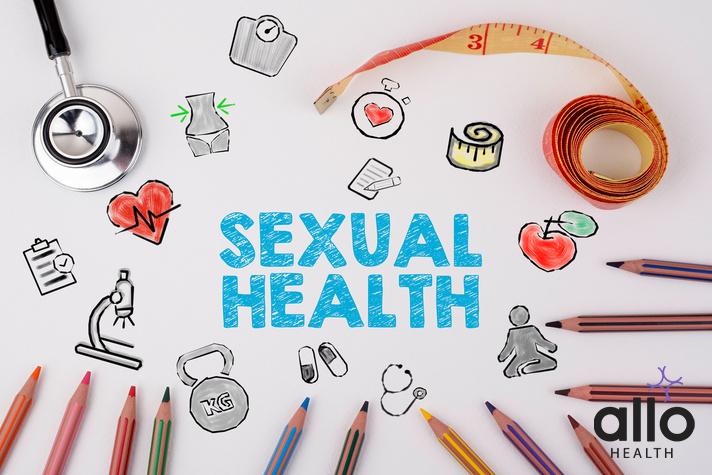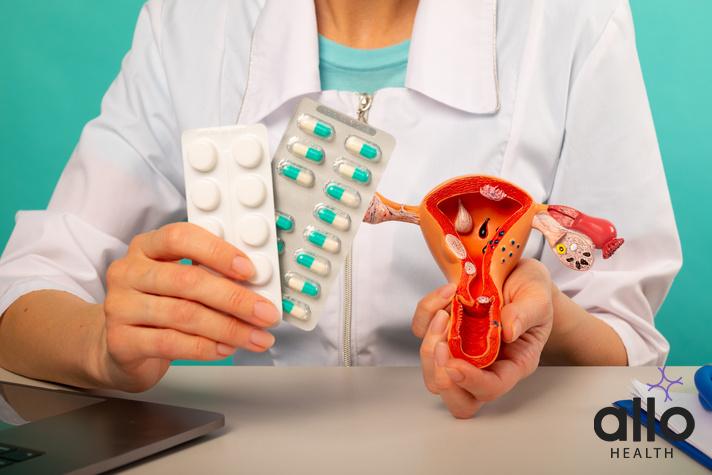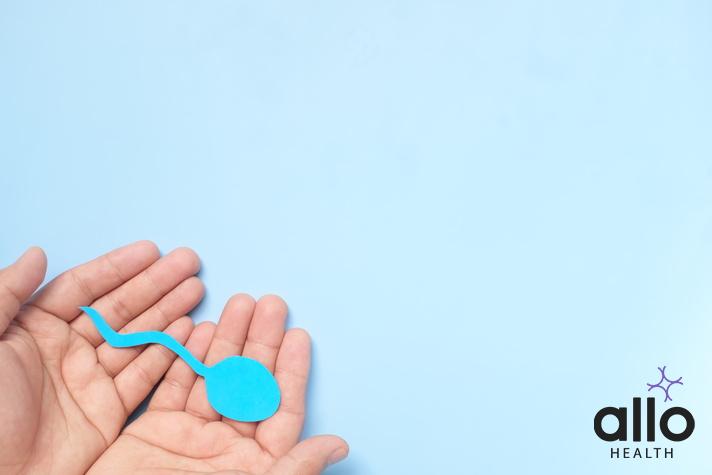Treatment and Management For Gynecological Disorders and Sexual Health

Allo Health is dedicated to personalized well-being, offering support and trusted information tailored to individual health goals. The platform emphasizes human-generated content, led by a distinguished medical team of experts, including physicians and sexual health specialists. Their commitment to credibility involves rigorous fact-checking, authoritative research, and continuous updates to ensure accurate, up-to-date information. Allo Health's unique approach goes beyond conventional platforms, providing expert-led insights and a continuous commitment to excellence, with user feedback playing a crucial role in shaping the platform's authoritative voice.

Dr Sanina Mansoor holds MBBS degree from Yenepoya university,Mangalore.She has 8 years of experience working as a medical officer at various health centres and medical colleges.
Why This Was Upated?
Our experts continually monitor the health and wellness space, and we update our articles when new information became available.
Updated on 10 February, 2025
- Article was updated as part of our commitment to diversity, equity, and inclusion.

"The following blog article provides general information and insights on various topics. However, it is important to note that the information presented is not intended as professional advice in any specific field or area. The content of this blog is for general educational and informational purposes only.
Book consultation
The content should not be interpreted as endorsement, recommendation, or guarantee of any product, service, or information mentioned. Readers are solely responsible for the decisions and actions they take based on the information provided in this blog. It is essential to exercise individual judgment, critical thinking, and personal responsibility when applying or implementing any information or suggestions discussed in the blog."
Treatment and Management for Gynecological Disorders and Sexual Health
Gynecological disorders encompass a range of issues that affect the female reproductive system, including the uterus, ovaries, fallopian tubes, and vagina. These disorders can significantly impact a woman’s sexual health, quality of life, and overall well-being. Understanding the treatment and management options for these conditions is crucial for maintaining optimal health. This article delves into common gynecological disorders, their symptoms, treatment options, and strategies for managing sexual health.
Common Gynecological Disorders
- Polycystic Ovary Syndrome (PCOS):
PCOS is a hormonal disorder common among women of reproductive age. Symptoms include irregular menstrual periods, excess androgen levels, and polycystic ovaries. Treatment focuses on managing symptoms and may include lifestyle changes, medication, and sometimes surgery. - Endometriosis:
Endometriosis occurs when tissue similar to the lining inside the uterus grows outside it. This can cause severe pain, especially during menstruation, and may lead to fertility problems. Treatment options include pain relief medications, hormone therapy, and surgical interventions. - Fibroids:
Uterine fibroids are non-cancerous growths in the uterus that can cause heavy menstrual bleeding, pain, and pressure in the pelvic area. Treatment can range from watchful waiting to medications and surgical procedures such as myomectomy or hysterectomy. - Pelvic Inflammatory Disease (PID):
PID is an infection of the female reproductive organs, often caused by sexually transmitted infections. Symptoms include pelvic pain, fever, and abnormal vaginal discharge. Treatment typically involves antibiotics and, in severe cases, hospitalization. - Ovarian Cysts:
Ovarian cysts are fluid-filled sacs in the ovary. While many cysts are harmless and resolve on their own, some can cause pain and complications. Treatment may involve monitoring, hormonal contraceptives, or surgery. - Vulvodynia:
Vulvodynia is chronic pain in the vulva with no identifiable cause. It can lead to discomfort and pain during intercourse, making it a significant concern for sexual health. Treatment options include medications, physical therapy, and lifestyle changes.
Treatment Options

- Medications
- Hormonal Treatments: Hormonal contraceptives can regulate menstrual cycles, reduce symptoms of PCOS, and manage endometriosis-related pain.
- Pain Relief: Nonsteroidal anti-inflammatory drugs (NSAIDs) like ibuprofen can help manage pain associated with conditions like endometriosis and fibroids.
- Antibiotics: Used to treat infections such as PID, antibiotics can effectively eliminate the underlying bacterial cause.
- Surgical Interventions
- Laparoscopy: A minimally invasive surgery used to diagnose and treat conditions like endometriosis and ovarian cysts.
- Hysterectomy: The removal of the uterus, which may be necessary for severe cases of fibroids, endometriosis, or other uterine disorders.
- Myomectomy: Surgical removal of fibroids, preserving the uterus and fertility.
- Lifestyle Changes
- Physical Therapy
- Pelvic Floor Therapy: Physical therapy focusing on the pelvic floor muscles can alleviate pain and discomfort related to vulvodynia and other pelvic disorders.
- Alternative Therapies
- Acupuncture: Some women find relief from symptoms of gynecological disorders through acupuncture.
- Herbal Remedies: Certain herbs and supplements may help manage symptoms, but it is crucial to consult with a healthcare provider before starting any alternative treatment.
Managing Sexual Health

- Open Communication
- With Healthcare Providers: Discussing symptoms and concerns openly with a gynecologist can lead to better diagnosis and treatment plans.
- With Partners: Communication with sexual partners about symptoms, pain, and discomfort can improve intimacy and understanding.
- Education and Awareness
- Understanding Conditions: Educating oneself about gynecological disorders and their impact on sexual health can empower women to seek appropriate treatment and make informed decisions.
- Sexual Health Resources: Accessing resources such as books, websites, and support groups can provide valuable information and support.
- Safe Practices
- Regular Screenings: Regular gynecological exams and screenings for sexually transmitted infections (STIs) are essential for maintaining sexual health.
- Safe Sex: Using condoms and practicing safe sex can prevent infections that could lead to gynecological complications.
- Mental Health Support
- Counseling: Therapy can help address the emotional and psychological impact of gynecological disorders on sexual health.
- Support Groups: Joining support groups with other women experiencing similar issues can provide emotional support and practical advice.
- Healthy Lifestyle
- Nutrition: A balanced diet rich in vitamins and minerals supports overall health and can alleviate some symptoms of gynecological disorders.
- Exercise: Regular physical activity improves circulation, reduces stress, and promotes overall well-being.
Gynecological disorders can significantly impact a woman’s sexual health and quality of life. Understanding the treatment and management options available is crucial for maintaining optimal health. Whether through medication, surgery, lifestyle changes, or alternative therapies, effective management of these conditions is possible. Open communication with healthcare providers and partners, education, and a proactive approach to sexual health are key components in managing these disorders. By taking these steps, women can improve their overall well-being and maintain a healthy, fulfilling intimate life.








































